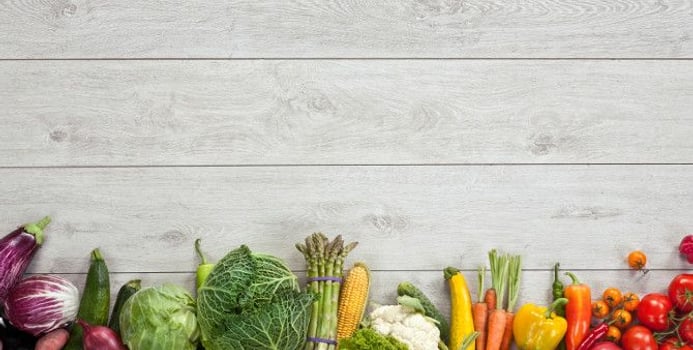As with any weight loss plan, the secret to a balanced vegetarian weight loss plan is variety. When following a vegetarian diet, variety not only keeps food entertaining and tasty, but also ensures a wide variety of essential amino acids to be sure the diet contains complete proteins. Variety also provides a wide spectrum of vitamins, minerals, fiber and micronutrients to ensure optimum health.
Getting Started With Vegetarian Eating
Many people jump into vegetarian eating as a weight loss plan because, when practiced properly, the veggie diet is naturally lower fat than a meat-based diet. The veggie diet has its own version of the food pyramid which, if followed closely, can ensure a heart-healthy, highly nutritious and low calorie approach to eating that can lead to greater energy and steady weight loss.
The vegetarian diet should include daily servings of:
Fruits and Vegetables
Although "vegetarianism" seems like it should focus completely on vegetables, 4-5 servings of these staple foods will provide a rich mixture of vitamins, minerals and iron. Be sure to include dark-colored fruits for potent antioxidant content and green leafy vegetables for iron, calcium and folates. Adding a varied fruit diet provides vitamin C and fiber.
Grains and Cereals
3-4 servings of grains each day provide a variety of B vitamins, as well as calcium and iron. Be sure to include a mix of different kinds of grains, including millet, barley, oats, rye, corn, buckwheat and quinoa as well as wheat. Whole grain products are always best. Processed grains contain very little nutrition and are hard on the body.
Nuts, Seeds and Legumes
2-3 servings every day gives a jumpstart on protein. These tiny nutritional powerhouses also provide iron, zinc, micronutrients, and a good-sized serving of fiber. Combining a food from this group with a grain is a good way to give the body a full package of essential amino acids--the building blocks used to create protein.
Soy or Dairy
Including dairy products in a vegetarian diet is a personal choice. Those who do not consume dairy or eggs are considered vegan. Making the switch from a meat-based diet to vegetarian is easier than jumping all the way to a vegan diet. In either case, this food group should consist of about 2 servings per day to provide protein and other nutrients such as vitamins E and B12, as well as calcium. Soy products such as tofu contain complete proteins that the body can easily use.
Fats and Oils
As with a non-vegetarian diet, fats and oils should be limited to small quantities. Keeping to polyunsaturated fats, such as olive oil, canola oil and avocados, helps maintain heart health. Essential fatty acids can be found in this food group, but are also provided by nuts, dairy and, surprisingly enough, certain fruits and vegetables.
It might be a little confusing at first to get a vegetarian diet underway. Seek out new recipes, new ways of cooking, and new spices to keep meals tasty, healthy and entertaining. A high-quality vegetarian diet is not difficult to attain--use your imagination and you will soon find yourself happily eating vegetarian every day.



